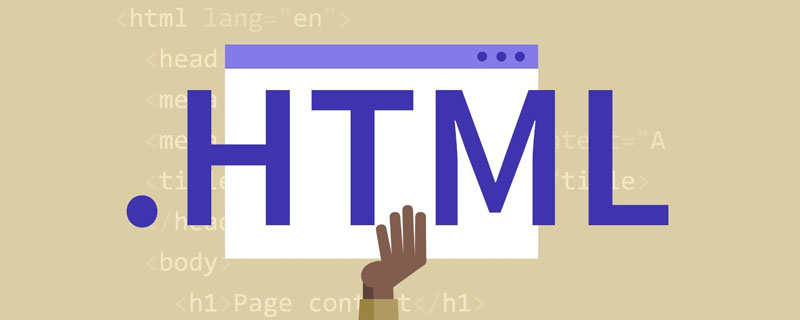 Web Front-end
Web Front-end JS Tutorial
JS Tutorial Introduction to implicit type conversion of comparison operators in JavaScript (with examples)
Introduction to implicit type conversion of comparison operators in JavaScript (with examples)This article brings you an introduction to implicit type conversion of comparison operators in JavaScript (with examples). It has certain reference value. Friends in need can refer to it. I hope it will be helpful to you. .
I believe you often see '==' and '===' in your code, but do you really understand comparison operators and the implicit conversions therein? Let's re-understand comparison operators today .
Congruence operator===
Description: Strict matching, no type conversion, the data type and value must be exactly the same
先判断类型,如果类型不是同一类型的话直接为false; 1 对于基本数据类型(值类型): Number,String,Boolean,Null和Undefined:两边的值要一致,才相等 console.log(null === null) // true console.log(undefined === undefined) // true 注意: NaN: 不会等于任何数,包括它自己 console.log(NaN === NaN) // false 2 对于复杂数据类型(引用类型): Object,Array,Function等:两边的引用地址如果一致的话,是相等的 arr1 = [1,2,3]; arr2 = arr1; console.log(arr1 === arr2) // true
Equality operator==
Non-strict matching: Type conversion is possible, but there are five situations with preconditions
(The following code uses x == y as an example)
x and y are both null or undefined:
Rules: No implicit type conversion, return true unconditionally
console.log ( null == undefined );//true console.log ( null == null );//true console.log ( undefined == undefined );//true
x or y is NaN: NaN is not equal to any number
Rules: No implicit type conversion, return unconditionally false
console.log ( NaN == NaN );//false
x and y are string, boolean, number
Rules: There is implicit type conversion, which will convert data that is not number type into number
console.log ( 1 == true );//true (1) 1 == Number(true)
console.log ( 1 == "true" );//false (1) 1 == Number('true')
console.log ( 1 == ! "true" );//false (1) 1 == !Boolean('true') (2) 1 == !true (3) 1 == false (4)1 == Number(false)
console.log ( 0 == ! "true" );//true
console.log(true == 'true') // false
x or y is Complex data type: The original value of the complex data type will be obtained first and then left compared
The original value of the complex data type: First call the valueOf method, and then call the toString method
valueOf: generally returns itself by default
Array toString: By default, the join method will be called to splice each element and the spliced string will be returned.
console.log ( [].toString () );//空字符串
console.log ( {}.toString () );//[object Object]
注意: 空数组的toString()方法会得到空字符串,
而空对象的toString()方法会得到字符串[object Object] (注意第一个小写o,第二个大写O哟)
console.log ( [ 1, 2, 3 ].valueOf().toString());//‘1,2,3’
console.log ( [ 1, 2, 3 ] == "1,2,3" );//true (1)[1,2,3].toString() == '1,2,3' (2)'1,2,3' == '1,2,3'
console.log({} == '[object Object]');//true
x and y are both complex data types:
The rule only compares addresses, and returns true if the addresses are consistent, otherwise Return false
var arr1 = [10,20,30];
var arr2 = [10,20,30];
var arr3 = arr1;//将arr1的地址拷贝给arr3
console.log ( arr1 == arr2 );//虽然arr1与arr2中的数据是一样,但是它们两个不同的地址
console.log ( arr3 == arr1 );//true 两者地址是一样
console.log ( [] == [] );//false
console.log ( {} == {} );//false
Classic Interview Questions
注意:八种情况转boolean得到false: 0 -0 NaN undefined null '' false document.all()
console.log([] == 0); //true
// 分析:(1) [].valueOf().toString() == 0 (2) Number('') == 0 (3) false == 0 (4) 0 == 0
console.log(![] == 0); //true
// 分析: 逻辑非优先级高于关系运算符 ![] = false (空数组转布尔值得到true)
console.log([] == []); //false
// [] 与右边逻辑非表达式结果比较
//(1) [] == !Boolean([]) (2) [] == !true (3)[] == false (4) [].toString() == false (5)'' == false (6)Number('0') == Number(false)
console.log([] == ![]); //true
onsole.log({} == {}); //false
// {} 与右边逻辑非表达式结果比较
//(1){} == !{} (2){} == !true (3){} == false (4){}.toString() == false (5)'[object Object]' == false (6)Number('[object Object]') == false
console.log({} == !{}); //false
Abnormal Interview Questions
var a = ???
if(a == 1 && a == 2 && a == 3 ){
console.log(1)
}
//如何完善a,使其正确打印1
//答案
var a = {
i : 0, //声明一个属性i
valueOf:function ( ) {
return ++a.i; //每调用一次,让对象a的i属性自增一次并且返回
}
}
if (a == 1 && a == 2 && a == 3){ //每一次运算时都会调用一次a的valueOf()方法
console.log ( "1" );
}
This article has ended here. For more other exciting content, you can pay attention to the PHP Chinese website The JavaScript video tutorial column!
The above is the detailed content of Introduction to implicit type conversion of comparison operators in JavaScript (with examples). For more information, please follow other related articles on the PHP Chinese website!
 html5的div一行可以放两个吗Apr 25, 2022 pm 05:32 PM
html5的div一行可以放两个吗Apr 25, 2022 pm 05:32 PMhtml5的div元素默认一行不可以放两个。div是一个块级元素,一个元素会独占一行,两个div默认无法在同一行显示;但可以通过给div元素添加“display:inline;”样式,将其转为行内元素,就可以实现多个div在同一行显示了。
 html5中列表和表格的区别是什么Apr 28, 2022 pm 01:58 PM
html5中列表和表格的区别是什么Apr 28, 2022 pm 01:58 PMhtml5中列表和表格的区别:1、表格主要是用于显示数据的,而列表主要是用于给数据进行布局;2、表格是使用table标签配合tr、td、th等标签进行定义的,列表是利用li标签配合ol、ul等标签进行定义的。
 html5怎么让头和尾固定不动Apr 25, 2022 pm 02:30 PM
html5怎么让头和尾固定不动Apr 25, 2022 pm 02:30 PM固定方法:1、使用header标签定义文档头部内容,并添加“position:fixed;top:0;”样式让其固定不动;2、使用footer标签定义尾部内容,并添加“position: fixed;bottom: 0;”样式让其固定不动。
 HTML5中画布标签是什么May 18, 2022 pm 04:55 PM
HTML5中画布标签是什么May 18, 2022 pm 04:55 PMHTML5中画布标签是“<canvas>”。canvas标签用于图形的绘制,它只是一个矩形的图形容器,绘制图形必须通过脚本(通常是JavaScript)来完成;开发者可利用多种js方法来在canvas中绘制路径、盒、圆、字符以及添加图像等。
 html5中不支持的标签有哪些Mar 17, 2022 pm 05:43 PM
html5中不支持的标签有哪些Mar 17, 2022 pm 05:43 PMhtml5中不支持的标签有:1、acronym,用于定义首字母缩写,可用abbr替代;2、basefont,可利用css样式替代;3、applet,可用object替代;4、dir,定义目录列表,可用ul替代;5、big,定义大号文本等等。
 html5废弃了哪个列表标签Jun 01, 2022 pm 06:32 PM
html5废弃了哪个列表标签Jun 01, 2022 pm 06:32 PMhtml5废弃了dir列表标签。dir标签被用来定义目录列表,一般和li标签配合使用,在dir标签对中通过li标签来设置列表项,语法“<dir><li>列表项值</li>...</dir>”。HTML5已经不支持dir,可使用ul标签取代。
 html5是什么意思Apr 26, 2021 pm 03:02 PM
html5是什么意思Apr 26, 2021 pm 03:02 PMhtml5是指超文本标记语言(HTML)的第五次重大修改,即第5代HTML。HTML5是Web中核心语言HTML的规范,用户使用任何手段进行网页浏览时看到的内容原本都是HTML格式的,在浏览器中通过一些技术处理将其转换成为了可识别的信息。HTML5由不同的技术构成,其在互联网中得到了非常广泛的应用,提供更多增强网络应用的标准机。
 Html5怎么取消td边框May 18, 2022 pm 06:57 PM
Html5怎么取消td边框May 18, 2022 pm 06:57 PM3种取消方法:1、给td元素添加“border:none”无边框样式即可,语法“td{border:none}”。2、给td元素添加“border:0”样式,语法“td{border:0;}”,将td边框的宽度设置为0即可。3、给td元素添加“border:transparent”样式,语法“td{border:transparent;}”,将td边框的颜色设置为透明即可。


Hot AI Tools

Undresser.AI Undress
AI-powered app for creating realistic nude photos

AI Clothes Remover
Online AI tool for removing clothes from photos.

Undress AI Tool
Undress images for free

Clothoff.io
AI clothes remover

AI Hentai Generator
Generate AI Hentai for free.

Hot Article

Hot Tools

SublimeText3 Mac version
God-level code editing software (SublimeText3)

SublimeText3 Linux new version
SublimeText3 Linux latest version

SecLists
SecLists is the ultimate security tester's companion. It is a collection of various types of lists that are frequently used during security assessments, all in one place. SecLists helps make security testing more efficient and productive by conveniently providing all the lists a security tester might need. List types include usernames, passwords, URLs, fuzzing payloads, sensitive data patterns, web shells, and more. The tester can simply pull this repository onto a new test machine and he will have access to every type of list he needs.

WebStorm Mac version
Useful JavaScript development tools

SublimeText3 English version
Recommended: Win version, supports code prompts!





